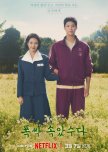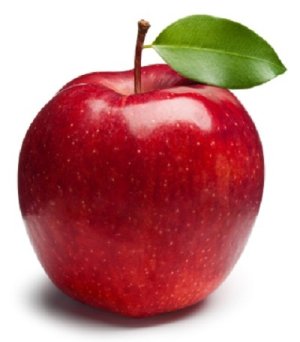
Truly a love letter to the older generation
When Life Gives You Tangerine surprised me with its powerful depiction of 1960s in South Korea, a reality that mirrors what many Asian cultures have experienced. The struggles of women of that time, the weight of traditions favoring men, the hardships of balancing dreams with harsh realities, and the importance of community.Ae-sun’s story echoes the lives of many women in her generation, my grandmother’s generation, maybe even yours. The drama powerfully explores how generational trauma and inherited dreams shape families, particularly mother-daughter relationships. Gwang-rye, pushed Ae-sun to escape her own fate. Ae-sun, in turn, worked tirelessly to give Geum-myeong a different life. Yet Geum-myeong’s resentment reveals how well-meaning sacrifices can sometimes create unintended consequences. Poverty and unfulfilled dreams hardened her, making her sharp-tongued, cynical, and distant. Even when her heart longed to show affection, her attempts to express gratitude often emerged as frustration and barbs. Meanwhile, Ae-sun’s focus on her daughter’s future left her brother feeling overlooked, as if he were an afterthought.
But what struck me most was how Ae-sun’s and Geum-myeong’s love lives mirrored each other, like a parallel, both faced difficult choices between love and self-preservation. Yet Geum-myeong, after witnessing her mother’s struggles firsthand, ultimately rejected her mother’s path. Just like how Ae-sun rejected her own mother’s path. Because that's how they were raised, to not walk the same path as their mother.
"I love my mom, but I don't want to live like her." "She gave everything for me, but at what cost?" "I don't want to tolerate what she did."
These are thoughts many daughters quietly wrestle with, loving their mothers yet fearing they may repeat their struggles. But to Gwang-rye and Ae-sun, their sacrifices were worth it. Some women surrender to fate and quietly plant trees whose shade they know they will never sit under, yet their efforts pave the way for their future generations to thrive. Ae-sun may have accepted her fate, but her determination ensured Geum-myeong could choose her own path. For that parallel, I commend the production team and writer for making IU play both Ae-sun and Geum-myeong. I must give it to the writer, every single character is so well crafted. Everyone played their role well, but IU's performance as Ae-sun truly defined the show. IU goes above and beyond, bringing such depth to Ae-sun’s character that her burdens, loneliness, poverty, and determination felt palpable through the screen. Special mention goes to Yeom Hye-ran for her short yet scene-stealing performances.
This is a powerful and deeply emotional story about love, loss, and RESILIENCE. And that’s what stayed with me most: even when life feels unbearable, and though you don't know how, somehow... life goes on.
And to anyone reading this...whoever, whenever, and wherever you are...you have done well.
Highly recommended.
Was this review helpful to you?

This review may contain spoilers
Revenge Begets Revenge
An eye for an eye will make the world blind and turn us into the monsters we are trying to punish.The writer has a strong concept for a revenge story, focusing on how the pursuit of revenge impacts those around the characters, rather than just the perpetrator and the victims. However, while the ideas are solid, the execution falls short in key areas such as plot development, editing, and direction. The pacing is slow and predictable, with too many unnecessary flashbacks and drawn-out scenes that overemphasize the angst. Important details that should have been revealed later are given away too soon, undermining the mystery of the male lead and making his revenge seem shallow, while excusing the female lead's motives. This reduces the characters to clear-cut villain and hero roles, rather than allowing for more complex, morally ambiguous portrayals. The missed opportunity for deeper layers of complexity and tension could have made the story far more compelling for audiences to dissect. The plot holes are also quite glaring, especially given that the male lead is portrayed as intelligent and manipulative, with ample connections and resources, yet he only pieces together certain facts much later—while the female lead relies on a quick web search and a contact with a reporter to uncover them.
Despite a strong story that suffered from poor execution, the cast delivered stellar performances.
1st Half: Dominated by Kim Nam Joo, whose portrayal of grief is hauntingly painful yet profoundly raw. Special mention goes to Kang Ae Sim, whose powerful depiction of a kind convict with a complex backstory set a crucial dramatic tone for the drama, highlighting how revenge can affect others.
2nd Half: I’m genuinely surprised by how Cha Eun Woo took over the second half of the show. For the first time, I felt like I was seeing his character, not just the actor himself. While he may not have been as strong in earlier roles, I admire his commitment to improvement. He consistently chooses roles that challenge him, rather than just opting for what’s popular among actors his age. His mature performance in this drama truly stole the scene; he portrayed sorrow and pain so physically that you could feel it shaking his whole body. Special mention goes to Won Mi Kyung for being the heart of the drama.
If Kim Nam Joo portrayed her grief with subdued, suppressed raw emotions that eventually burst into flames, Cha Eun Woo depicted his grief with intense, explosive anger and desperation that ultimately fizzled into a sorrowful sense of helplessness and hopelessness. When they are together, they create a compelling dynamic that both balances and challenges each other. Their conflicts and disagreements become a catalyst for their personal growth and mutual inspiration. In this way, the writing seems to get it right.
Highly recommended if you don't mind diving into heavier topics.
Was this review helpful to you?




